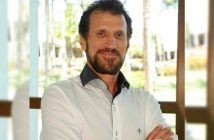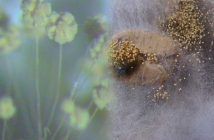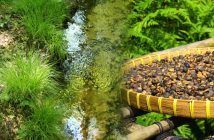An example of renewal in specialty coffee growth
Margarida and João Hélio Vilela are a couple of specialty coffee small-scale producers. Their property, sítio Vista Alegre, in Santo Antônio do Amparo, Minas Gerais, has four and a half hectares with 8,000 coffee plants and was bought only five years ago. Of these, 3500 plants produce specialty coffees, reaching 87 points rating on the SCAA scale.
“Before, we worked with milk and, afterwards, my husband and I went to harvest coffee at other farms”, says Margarida. João Hélio completes: “I grew up depending working for other people, and now I’m working in my own business. We are still producing little because now things are starting to work properly. We are in our fourth crop, last year we produced 60 bags of Catucaí Amarelo,” he explains proudly.
Thanks to their neighbor’s work, Miriam Monteiro de Aguiar, Owner of the Fazenda Cachoeira, sociologist and Q grader, who warned them about the quality of their coffees and the advantages of producing specialty coffee, also helping them to classify the coffee beverage produced in their small farm, from this knowledge passed by Miriam they started harvesting specialty coffees on the property. “Miriam brought information to us, we have been taught on the classification, testing and post-harvesting courses, we have learned how to drink coffee and identify the quality of what is planted in our land,” says Margarida. All the courses they did were carried out in the farmers’ cooperative of the region, AFASA, Associação dos Agricultores Familiares de Santo Antônio do Amparo. “It is an indisputable proof that the small farmer needs to improve itself, the farmers need to study to become more familiar to the coffee produced by them,” emphasizes the AFASA President, Uelerson Nakamura.
The crop also counts on the help of an agronomist from Lavras and the neighbors who always teach new techniques and lend materials. “We owe a lot to them”, explains João Hélio, referring mainly to the Fazenda Guariroba that won the 2016 Cup of Excellence. It was the most expensive specialty coffee in the Brazil’s history, sold at a price of US $ 5,370.37 per 60kg bag. The lot was bought by the Japanese company Maruyama Coffees.
João Hélio, better known as Joel, and Margarida are simple people who did not have many studying opportunities. But their daughters story is different, their two daughters. Leticia, the eldest, is 18 years old and is in her first year of law school. Patricia, 15, is in high school and already dreams of studying at the college of agriculture and life sciences.
Vilela family is a perfect example of how specialty coffee can be a very important vector of change for a society. They are small producers, with numerous challenges to overcome. But they already have a decent life, and are achieving the dream of sending their daughters to university, thus improving the standard of living for all. And promoting the renewal of the countryside.
As Joãosinho Trinta, a famous Brazilian director of samba schools, used to say, “only intellectuals appreciate poverty”.
Sítio Vista Alegre
Address – Sítio Vista Alegre, 1050
Municipality of Santo Antônio do Amparo – Minas Gerais
Owners: João Héio Vilela and Margarida Vilela
Specialty coffee production – 3.500 coffee plants – bushels?
Phone: +55 (35) 998562212
They don’t have a website
AFASA’s Role
AFASA, Associação dos Agricultores Familiares de Santo Antônio do Amparo, was founded in 2008 and gathers 60 small-scale producers that harvest 20 to 1000 bags of coffee. Currently, 15 to 20 producers dedicate themselves only to the specialty coffee and are exporting their product for five years.
Its president, Uelerson Nakamura, which is only 23 years old, says that exported to the USA in the last year, through Atlas Coffee, a container with 320 bags of specialty coffee. What was left was commercialized internally, with a premium of R$ 100.00 for Olam Coffee.
AFASA provides the small-scale producers with more than 20 courses per year in several areas, and is maintained thanks to a small contribution of its associates, the city of Santo Antônio do Amparo and the Fundação Hans Newmann among others associates.
For this year, Nakamura expects 25 to 30 of his associates to produce specialty coffees. “We are looking for more domestic buyers for our specialty coffees. This is the only way we ensure that more and more producers are convinced of the advantages of working with coffees above 85 points”, he concludes.



